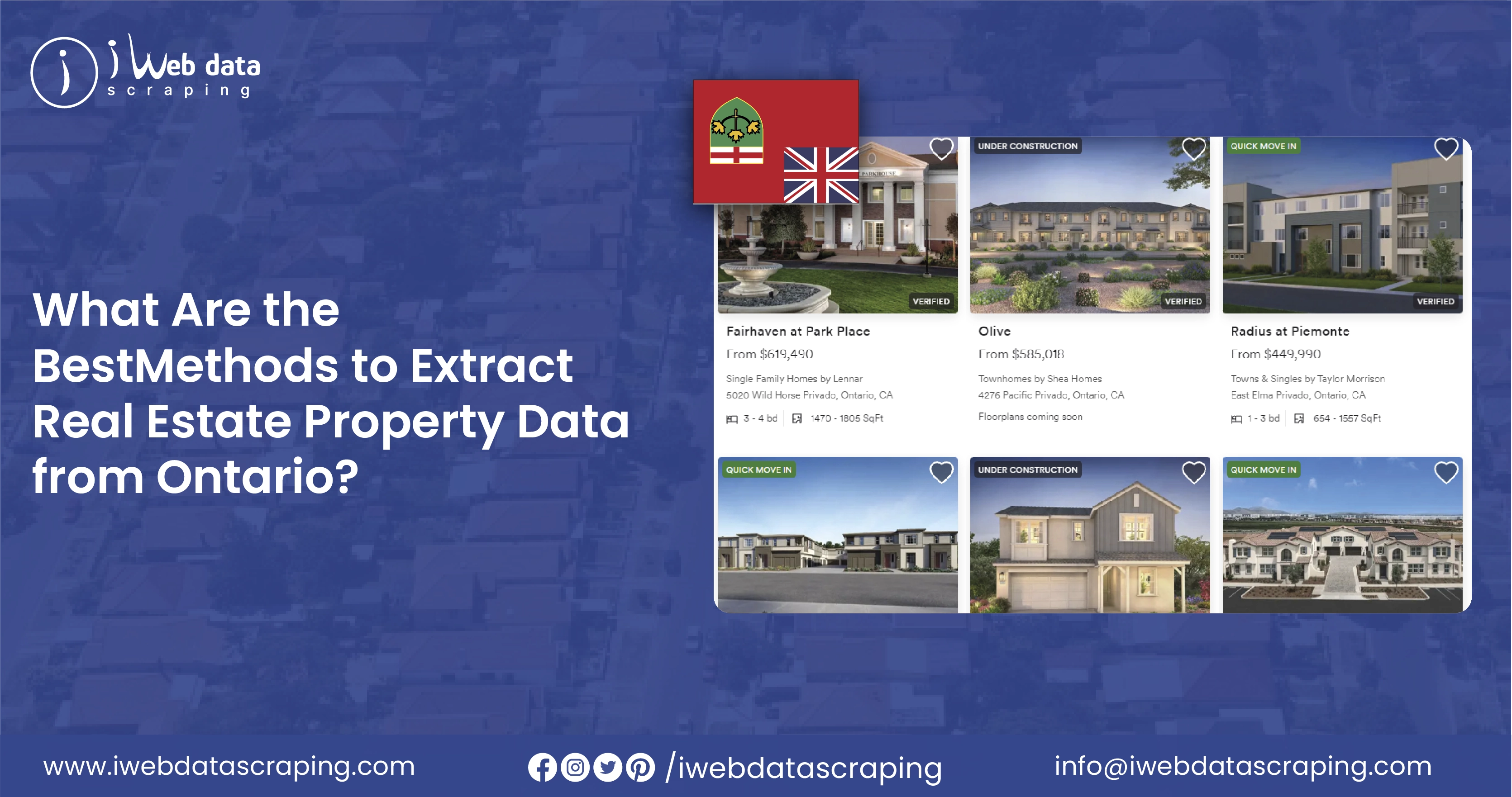
Investors, agents, and buyers must stay informed with accurate and comprehensive property data in Ontario's dynamic real estate market. This article explores how to extract real estate property data from Ontario effectively using Livabl and UrbanToronto, two leading websites that offer valuable insights into properties, market trends, and development projects. We will delve into various tools and techniques for web scraping real estate property data from Ontario, highlighting the methods for gathering detailed information. Additionally, we will discuss the significance of these data points and provide practical tips on leveraging them to make well-informed real estate decisions. By understanding how to utilize real estate property data scraping services, you can gain a competitive edge in the market, optimize investment strategies, and stay updated with the latest real estate developments.
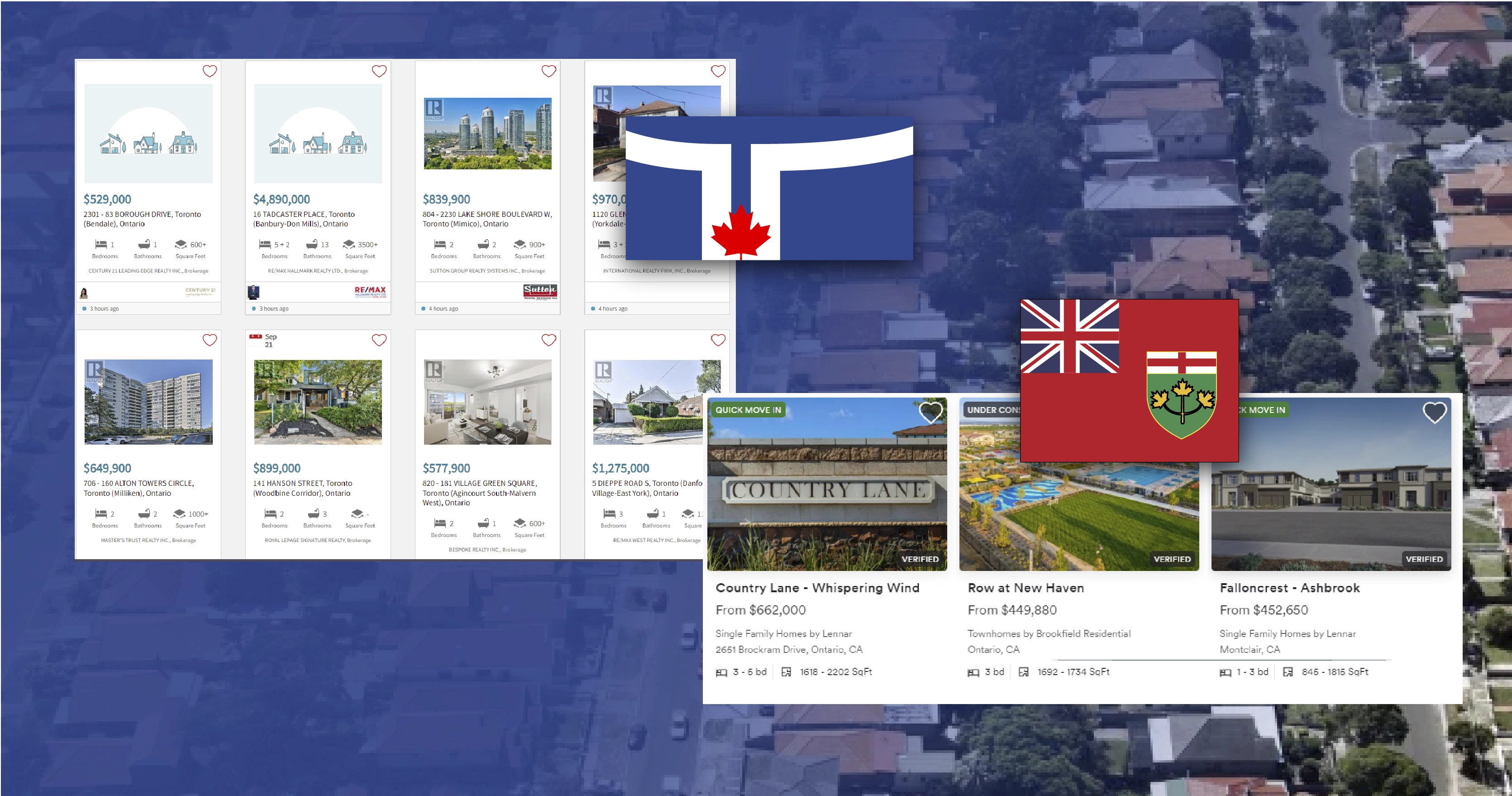
Livabl and UrbanToronto are pivotal platforms for acquiring real estate information in Ontario, each with distinct features and insights.
Livabl: Livabl specializes in new home developments and pre-construction projects, making it an essential resource for those interested in upcoming residential properties. This platform offers a wealth of information, including detailed property listing data collection from Ontario. Users can access comprehensive listings with project details, floor plans, pricing, and developer information. Livabl's focus on new condos, townhomes, and other residential properties makes it a valuable tool for those looking to scrape property data from Ontario and stay informed about the latest real estate developments.
UrbanToronto: UrbanToronto is a crucial source of news and updates regarding the real estate market in Toronto and the Greater Toronto Area (GTA). It provides extensive data on new developments, historical properties, and market trends. UrbanToronto's in-depth articles and forum discussions offer valuable insights into urban planning and the local real estate landscape. For those looking to scrape real estate data, UrbanToronto is invaluable for obtaining a comprehensive view of the market and understanding historical and current property trends.
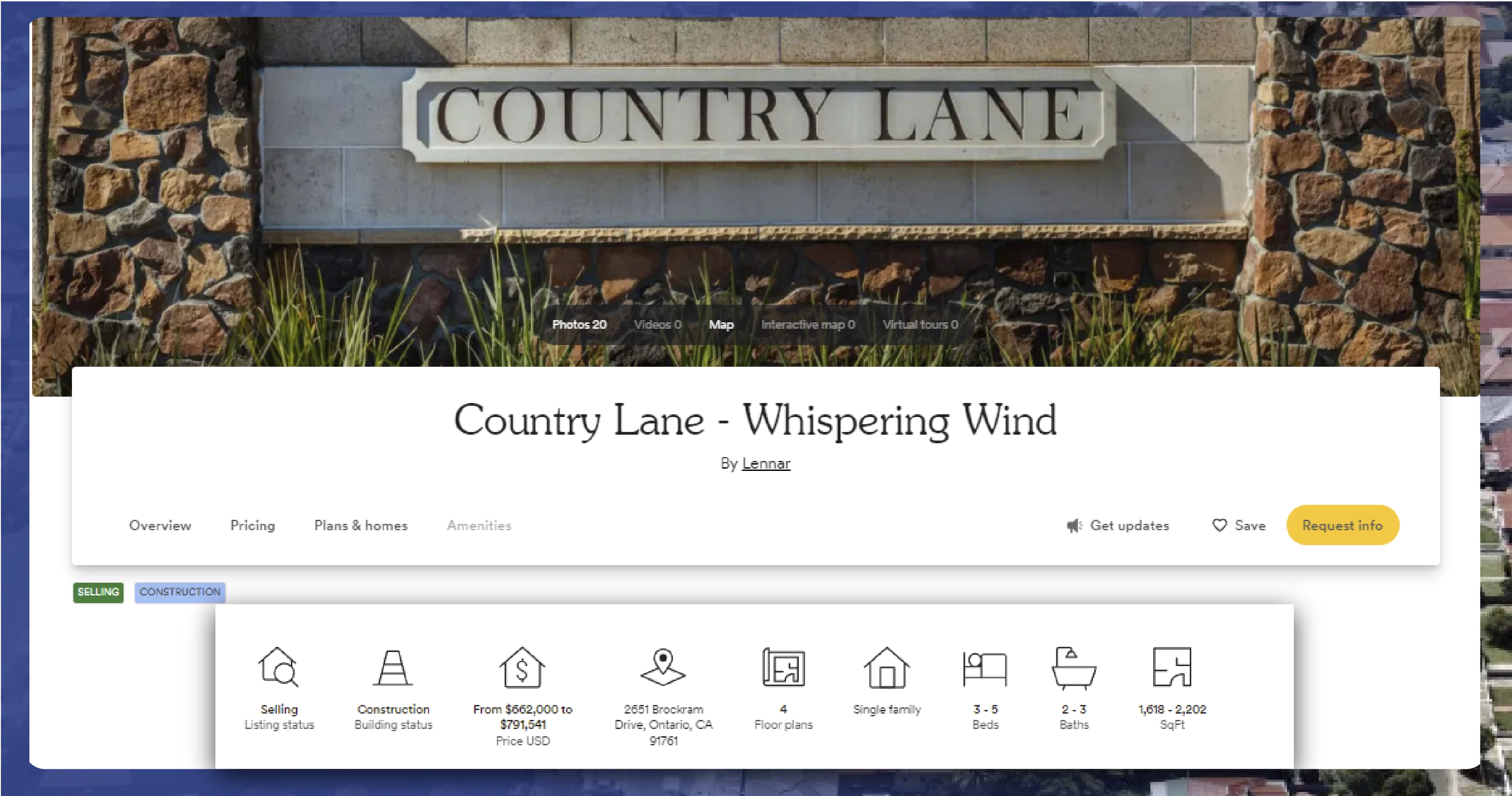
Here's a comprehensive list of data collected from Ontario real estate property data scraping:
1. Property Listings: Addresses, and property types (e.g., single-family homes, condos, townhomes).
2. Pricing Information: Listing prices, historical price trends, price per square foot.
3. Property Descriptions: Detailed property descriptions, including features and unique selling points.
4.Images: High-quality photos of the property's interior and exterior.
5.Amenities: Information on available amenities, such as:
6.Floor Plans: Layouts and dimensions of the property.
7.Development Status: Information on construction stages for new developments.
8.Location Details: Neighborhood information, proximity to schools, parks, and public transport.
9.Historical Data: Past sales data, rental history, and market trends.
10.Property Features: Number of bedrooms, bathrooms, and additional features (e.g., fireplaces, garages).

Extracting property data from Livabl and UrbanToronto provides several significant benefits:
1. Market Analysis: Gaining insights into market trends, pricing strategies, and property availability is crucial for making well-informed investment decisions. Utilizing an Ontario property data scraper allows you to analyze current and historical data to understand market dynamics and anticipate future movements, enhancing your ability to make strategic investment choices.
2. Competitive Advantage: Access to real-time data offers a substantial edge over competitors by revealing emerging opportunities and trends. Using an Ontario Real Estate Property Data Scraping API allows you to stay ahead in the fast-paced real estate market by identifying new developments and pricing strategies before they become widely known.
3. Strategic Planning: Data-driven insights are essential for effective strategic planning in real estate investments, developments, and acquisitions. Leveraging comprehensive data, whether focusing on residential and commercial property data scraping or other methods, helps make informed decisions that align with market trends and investment goals.
4. Client Insights: Real estate professionals can extract real estate store location data from Ontario to significantly enhance their service by offering clients up-to-date and relevant property information. Access to detailed data improves client satisfaction and helps in providing tailored recommendations based on the latest market insights.
5. Risk Management: Accurate property data helps assess risks associated with real estate investments. Investors can effectively identify and mitigate potential risks by analyzing historical data, market trends, and property performance, leading to more secure investment decisions.
6. Portfolio Optimization: Access to detailed data allows real estate investors managing multiple properties to optimize their portfolios better. By understanding market trends and property values, investors can make informed decisions about buying, selling, or holding properties to maximize returns.
7. Development Planning: Developers can use extracted data to identify prime locations for new projects, analyze demand, and assess the competition. This information is vital for planning successful developments and ensuring new projects align with market needs and preferences.
8. Enhanced Marketing Strategies: Real estate professionals can leverage property data to create targeted marketing campaigns. They can develop more effective strategies to attract potential buyers and investors by understanding buyer preferences and market trends.
9. Investment Valuation: Detailed property data aids in accurately valuing real estate assets. Investors and appraisers can determine fair market value and make better investment decisions by comparing properties, analyzing pricing trends, and assessing market conditions.
10. Regulatory Compliance: Access to comprehensive property data helps ensure compliance with local regulations and zoning laws. Real estate professionals can avoid potential legal issues and ensure that all transactions adhere to regulatory standards by staying informed about property details and market changes.
You can use several tools and techniques to extract property data from Livabl and UrbanToronto. Here's a step-by-step guide:
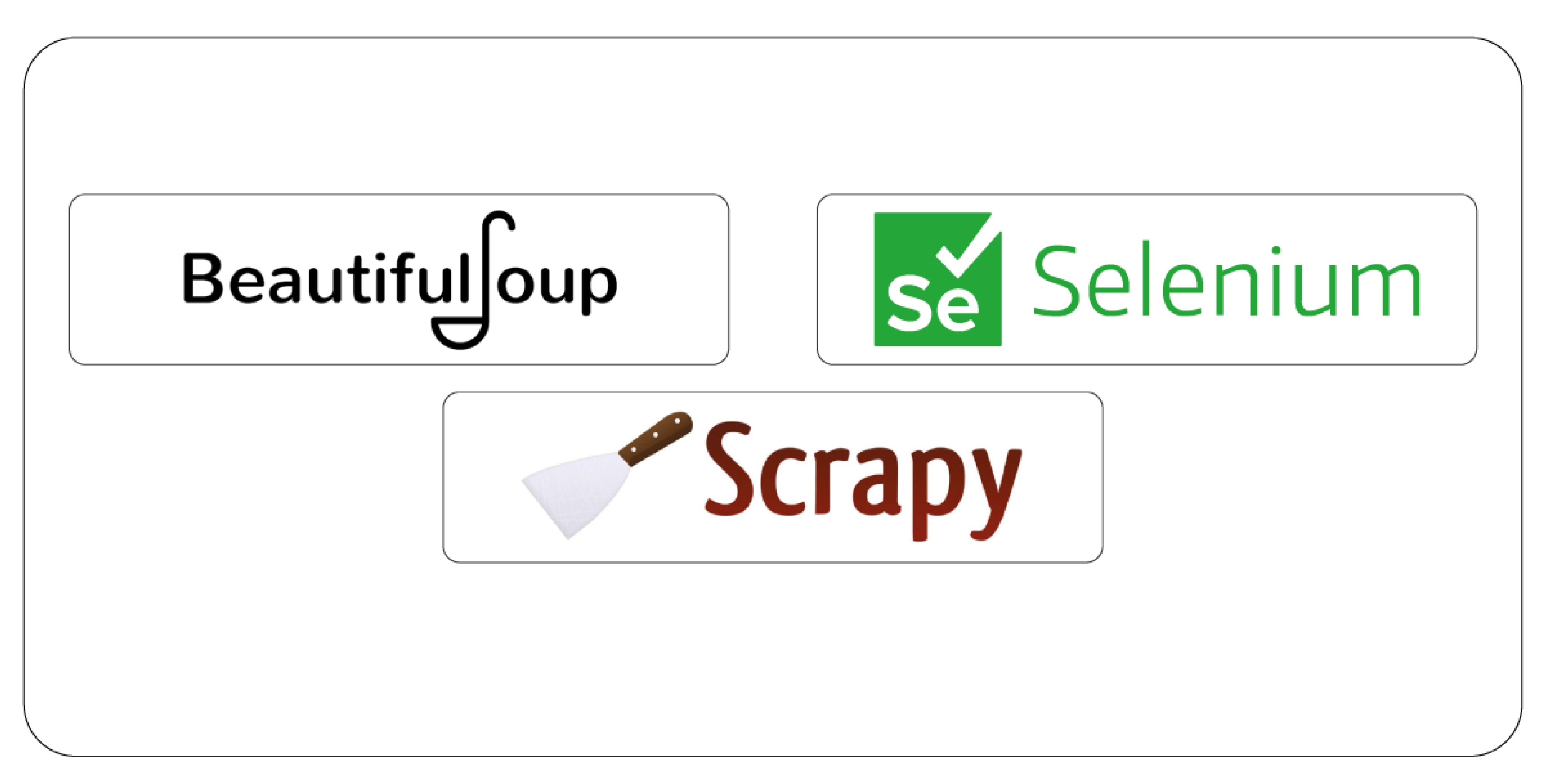
Web scraping involves extracting data from websites using automated tools or scripts. Here's how to get started:
a. Choose a Web Scraping Tool: Several web scraping tools can help you extract data from Livabl and UrbanToronto, including:
b. Identify Data Points: Determine the specific data points you need, such as:
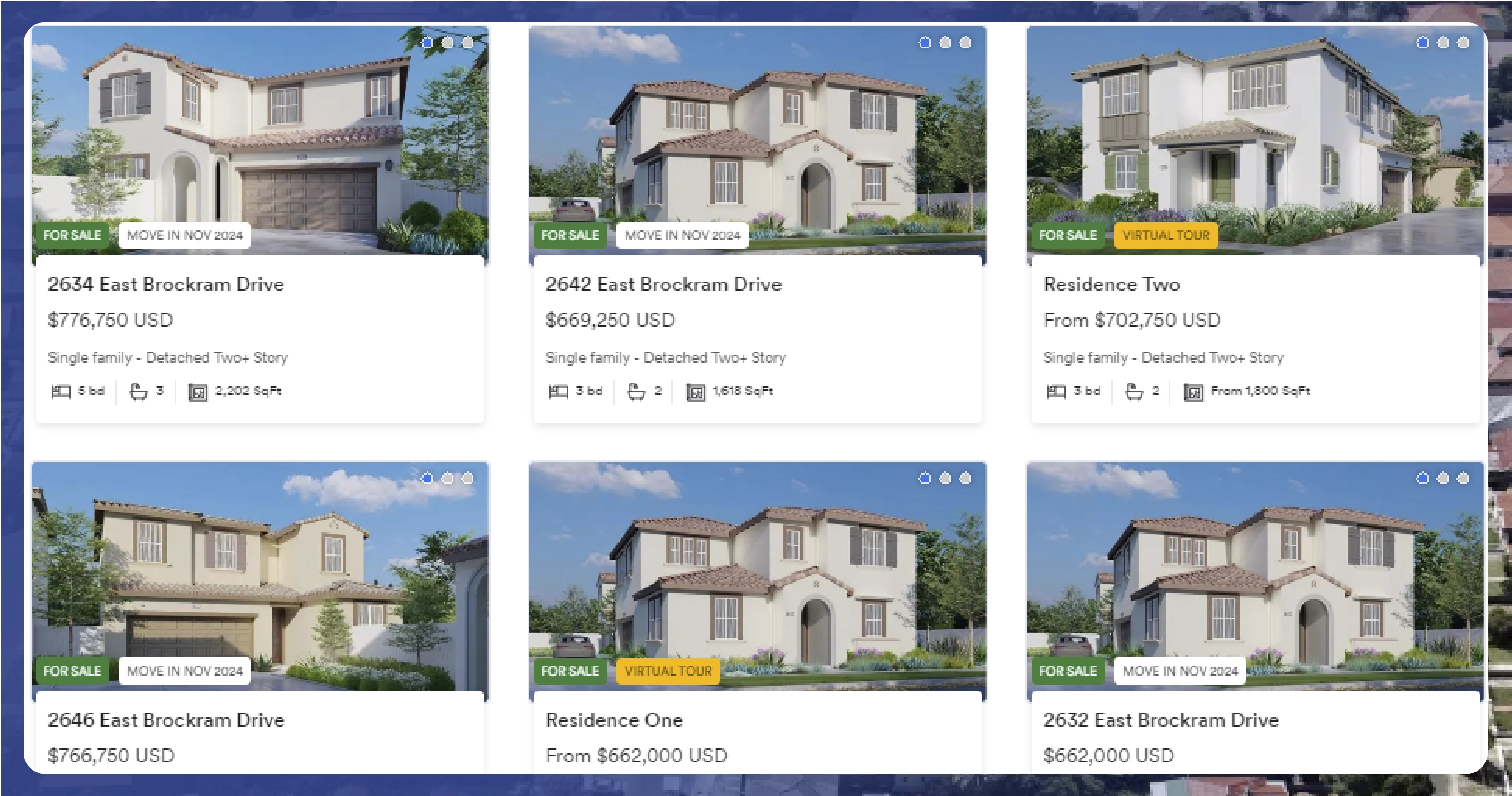
c. Inspect Website Structure: Use browser developer tools (e.g., Chrome DevTools) to inspect the HTML structure of the pages. Identify the HTML elements containing the data you need.
d. Write a Scraping Script: Develop a script to extract the desired data. For instance, using BeautifulSoup:
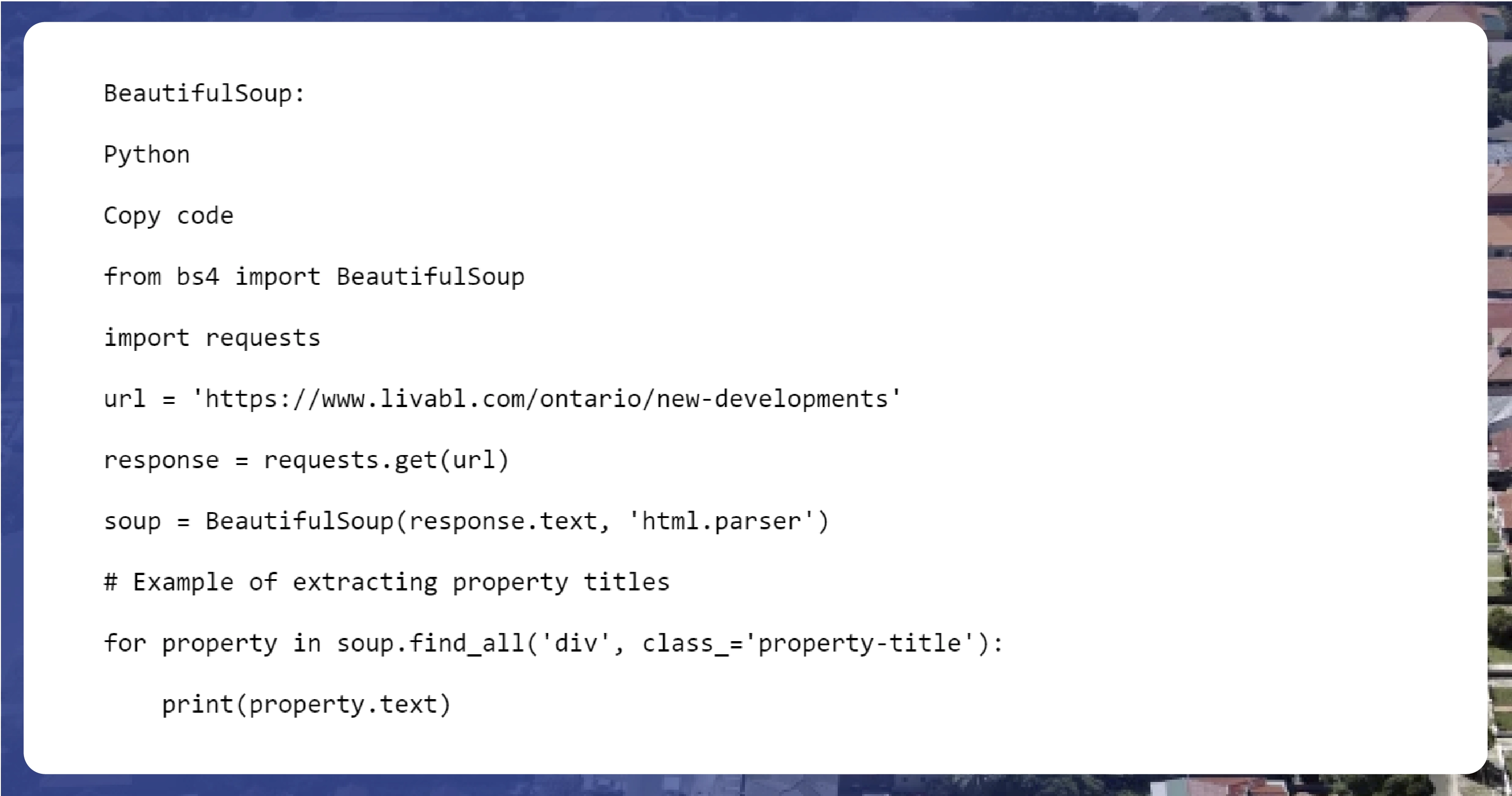
e. Handle Pagination: Many real estate websites use pagination. Ensure your script can navigate through multiple pages to gather all relevant data.
f. Store and Analyze Data: Save the extracted data in a structured format, such as CSV or JSON. Use tools like Pandas or Excel for analysis and visualization.
If Livabl and UrbanToronto offer APIs (Application Programming Interfaces), you can extract data programmatically.
a. Check for API Documentation: Review the API documentation to understand available endpoints and data structures. This is crucial for extracting accurate and relevant data.
b. Make API Requests: Use tools like Postman or programming languages (e.g., Python, JavaScript) to make API requests. For example, using Python's requests library:
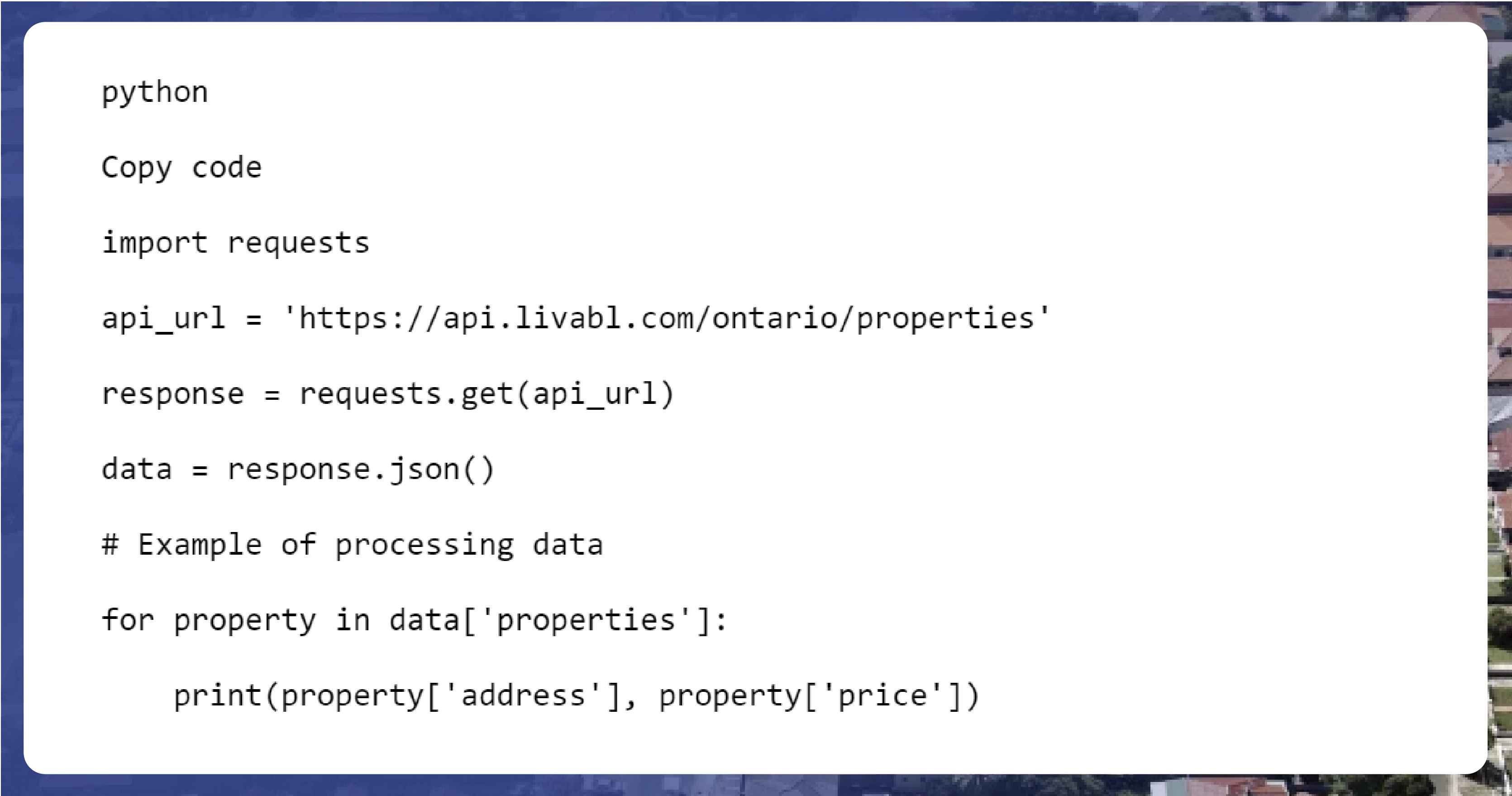
c. Handle API Limits: APIs often have usage limits. Ensure your data extraction process complies with these limits to avoid service interruptions.
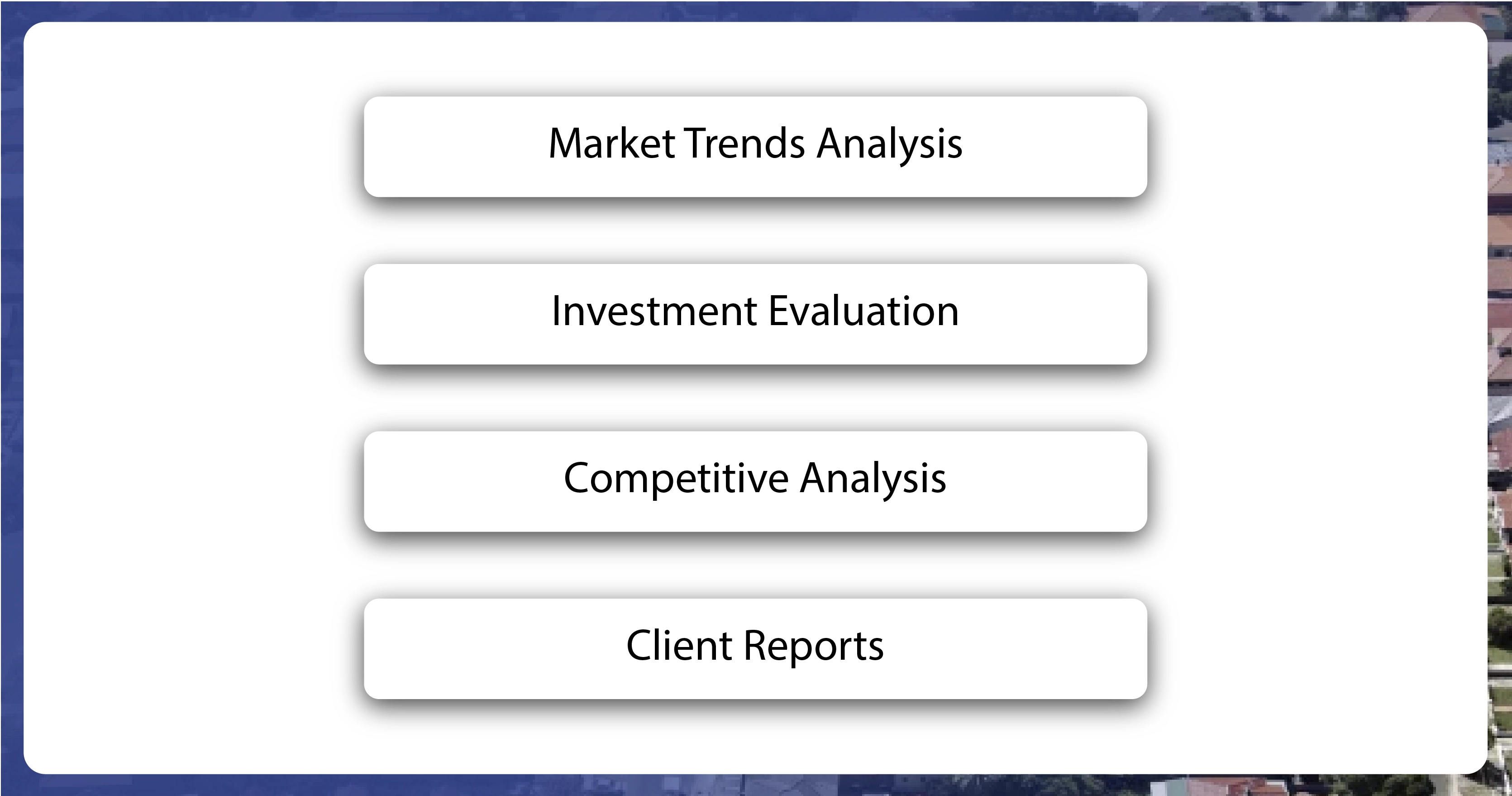
Once you've extracted property data from Livabl and UrbanToronto, you can analyze and apply it in various ways:
1. Market Trends Analysis: Analyzing historical and current data allows you to identify key market trends, such as price fluctuations, popular neighborhoods, and emerging development patterns. This process helps forecast future market conditions by examining how property values and trends evolve. Utilizing a Real Estate web scraping API can automate and streamline this analysis, providing you with up-to- date insights and allowing you to track changes in the market effectively.
2. Investment Evaluation: Evaluate potential investment opportunities by closely examining property prices, location data, and development statuses. Comparing these factors with broader market trends helps in making well-informed investment decisions. A Real Estate Property data Scraper can assist in gathering comprehensive data from various sources, ensuring you have accurate and detailed information for evaluating investment prospects.
3. Competitive Analysis: Keep track of your competitors by analyzing their property listings, pricing strategies, and marketing tactics. Understanding how other players in the market operate provides valuable insights that can refine your strategies and improve your competitive edge. Tools for Real Estate store location data scraping can help gather competitive intelligence by extracting relevant data on competitors' properties and their market approaches.
4. Client Reports: Generate detailed reports highlighting available properties, pricing trends, and market insights. Using data visualization tools, you can present this information clearly and engagingly. Leveraging Real Estate Property Datasets ensures that the reports are based on accurate, comprehensive, and up-to-date data, enhancing your ability to provide valuable insights and recommendations to clients.
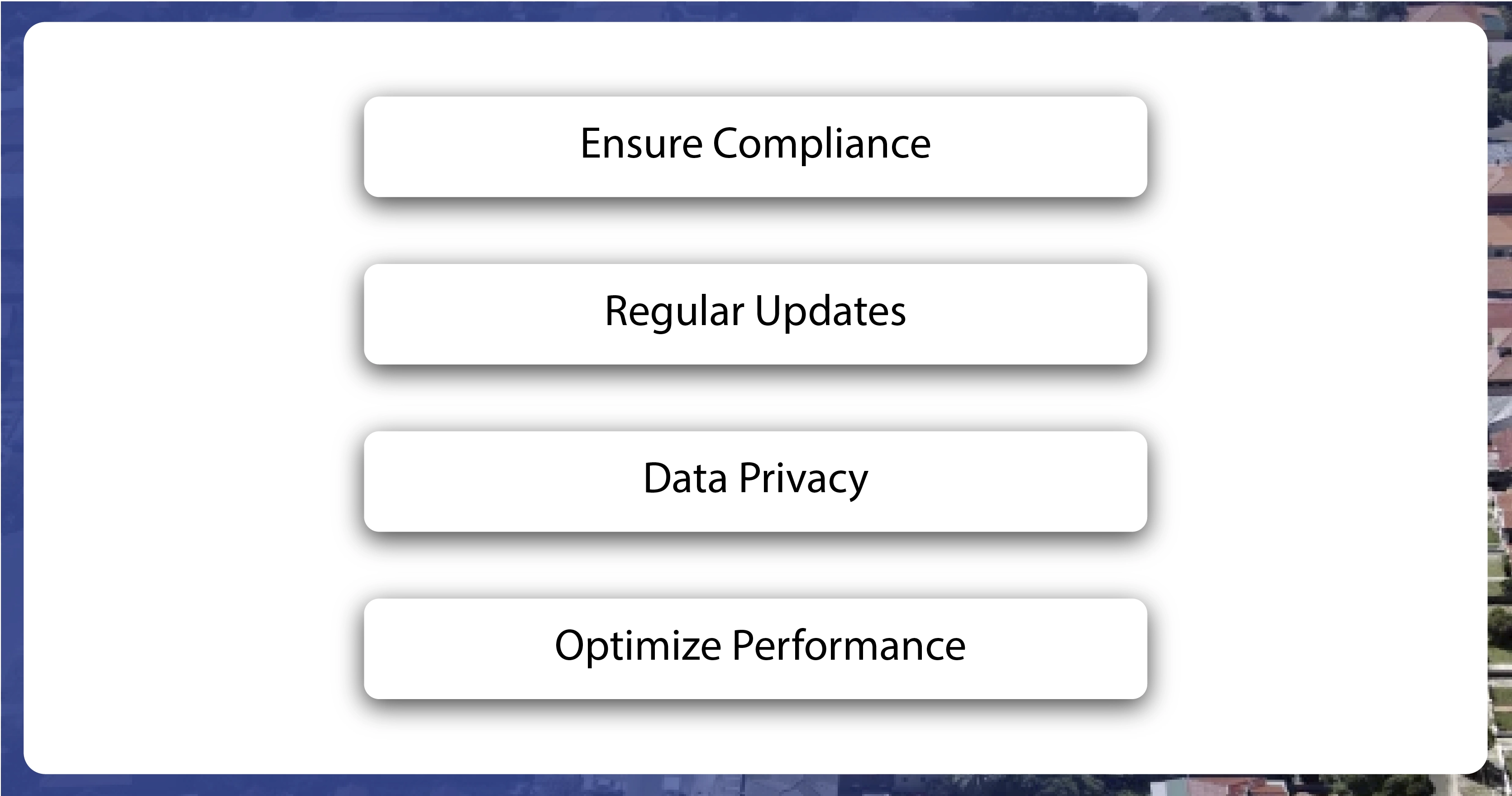
Discover the best practices for extracting real estate data to ensure accuracy, efficiency, and compliance. Learn to use advanced tools and techniques to gather valuable property insights, enhance investment strategies, and make informed real estate decisions.
1. Ensure Compliance: Always comply with Livabl and UrbanToronto's terms of service. Unauthorized scraping or excessive data requests can lead to legal issues or access restrictions.
2. Regular Updates: Real estate data changes frequently. Implement regular data extraction and update processes to ensure you have the most current information.
3. Data Privacy: When processing user information, handle personal data with care and ensure compliance with data privacy regulations, such as GDPR or CCPA.
4. Optimize Performance: Optimize your scraping scripts and API requests to reduce load times and avoid overwhelming the website's servers. Efficient data extraction processes ensure faster and more reliable results.
Extract real estate property data from Ontario to provide valuable insights into Ontario's market. You can access detailed property information, analyze market trends, and make informed investment decisions by leveraging web scraping and API integration techniques. Remember to follow best practices for data extraction, including compliance with website terms and data privacy regulations. With accurate and up-to-date data, you'll be well-equipped to navigate Ontario's dynamic real estate landscape and achieve your investment goals.
Experience top-notch web scraping service and mobile app scraping solutions with iWeb Data Scraping. Our skilled team excels in extracting various data sets, including retail store locations and beyond. Connect with us today to learn how our customized services can address your unique project needs, delivering the highest efficiency and dependability for all your data requirements.